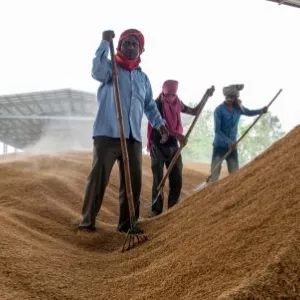India’s new ban on rice exports: Potential threats to global supply, prices, and food security
by Joseph Glauber and Abdullah Mamun OPEN ACCESS | CC-BY-4.0 On July 20, India announced that it would restrict exports of non-basmati rice to calm domestic rice prices that had risen more than 30% since October 2022 (Figure 1). The ban would halt overseas sales of the grain with “immediate effect,” the government announced, and is estimated to cover

India’s new ban on rice exports: Potential threats to global supply, prices, and food security
On July 20, India announced that it would restrict exports of non-basmati rice to calm domestic rice prices that had risen more than 30% since October 2022 (Figure 1). The ban would halt overseas sales of the grain with “immediate effect,” the government announced, and is estimated to cover about 75%-80% of Indian rice exports.
The ban is the latest blow to the global rice market, whose prices have risen 15%-20% since September 2022—this coming after a period of relative stability in the earlier part of that year, even as prices of other cereals were soaring due to the Russia-Ukraine war. Over the past 15 years, India has become the world’s largest rice exporter, accounting for 40% of global rice exports in 2022/23, so any move it makes can have significant market reverberations.

